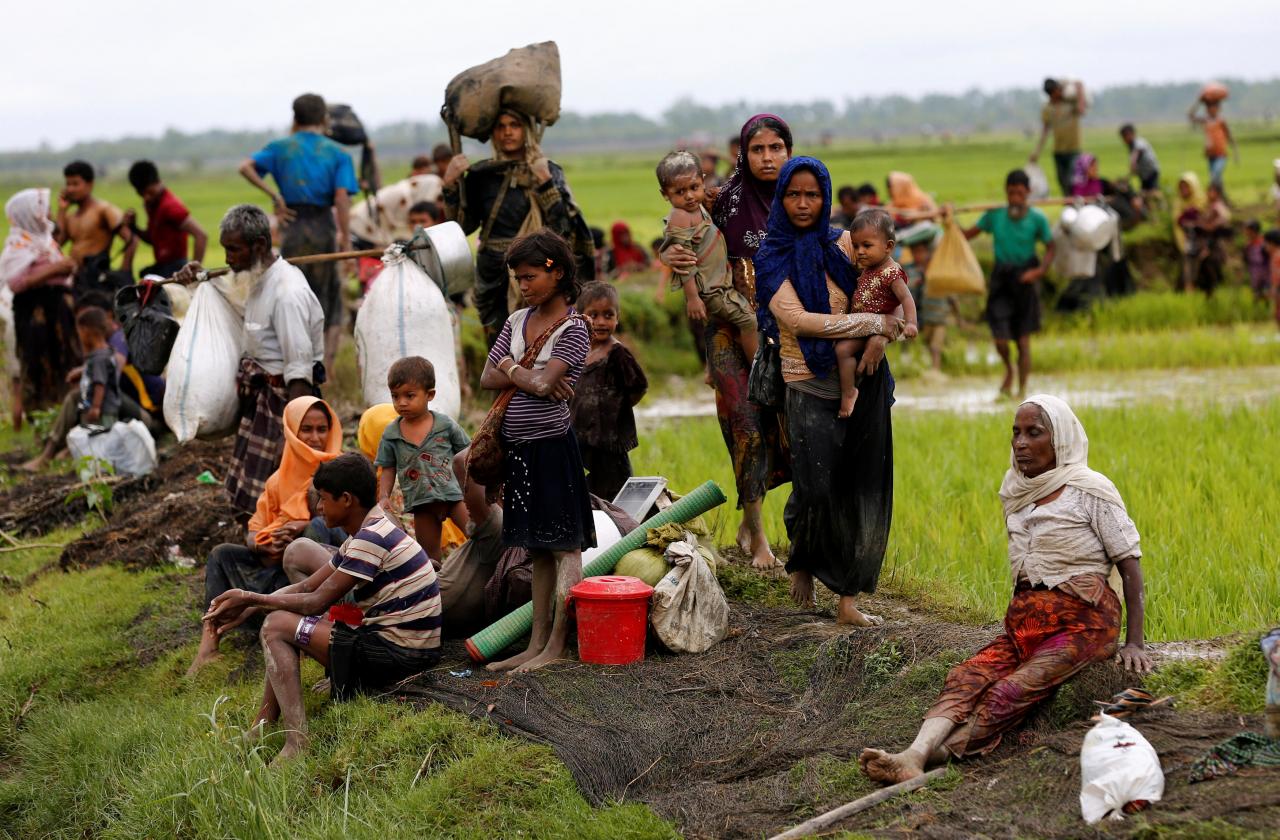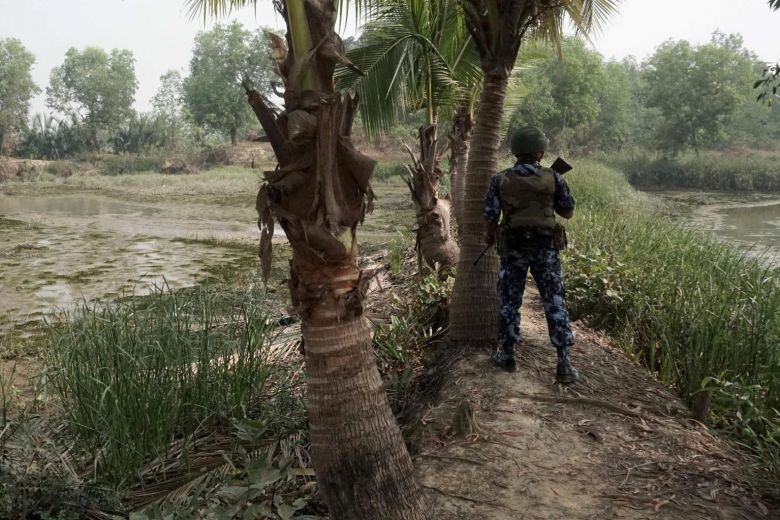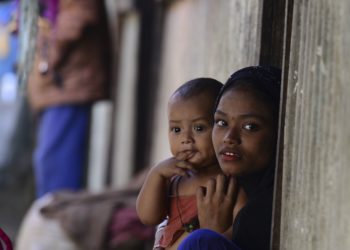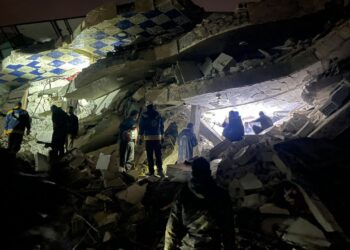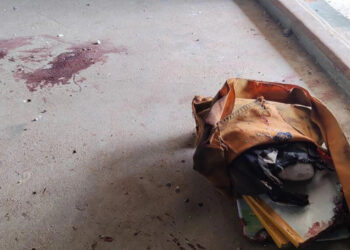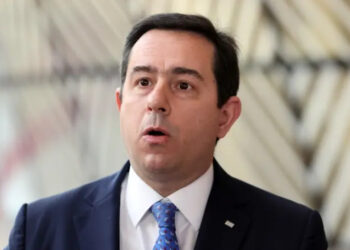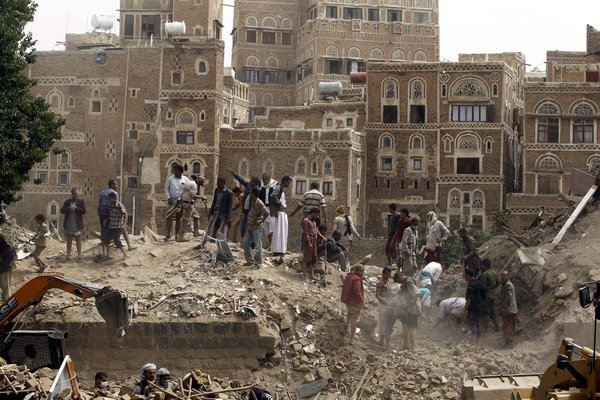As more than 123,000 Rohingya Muslims have fled to neighboring Bangladesh amid an escalating army crackdown, the U.N. and the Muslim world appealed to the Myanmar government to halt the operations against the Muslim minority.
U.N. Secretary-General Antonio Guterres warned the Myanmar leadership that the violence was “creating a situation that could destabilize the entire region.”
Turkey’s President Recep Tayyip Erdogan was more candid and blunter in his initial remarks, accusing Myanmar of committing a genocide against Muslims. President Erdogan said on Saturday that “there is a genocide out there.”
“Those who close their eyes to his genocide perpetuated under the cover of democracy are its collaborators,” the president said in Istanbul at the weekend. But Mr. Erdogan was more reserved and measured when he spoke to Myanmar’s State Counselor Aung San Suu Kyi on the phone on Tuesday.
He relayed his concerns about the deepening crisis and discussed with Ms. Kyi how to resolve the conflict, which has displaced 123,600 people according to the U.N.
The Turkish president equally placed the blame on the insurgents who launched multiple assaults on security posts and police stations in Rakhine state in late August, and the Myanmar troops. But he urged Myanmar’s de facto leader to show restraint in the use of force against Rohingya.
After securing the approval of Myanmar’s government, Turkey’s semi-official aid and relief agency TIKA will be the first foreign agency to distribute food and other essential materials to the displaced in the conflict zones where thousands were forced to leave home during army operations.
On Tuesday, Mr. Guterres told international media in New York that he conveyed his concerns to the U.N. Security Council in a statement elaborating about the roots and implications of the latest crisis.
When pressed by the question about emerging signs of a potential ethnic-cleansing, the U.N. chief still offered caution and hope. “We are facing a risk, but I hope we don’t get there.”
Part of the problem is Myanmar government’s suspicious view of the international aid organizations, a factor that leaves relief efforts in shambles and jeopardy. U.N. officials lament about mob looting of its warehouses in Rakhine state and highlight the urgent need for an immediate response to the worsening humanitarian crisis.
Just last week, Ms. Kyi accused international organizations of abetting terrorism and insurgency, charges that were immediately rebuked by U.N. Commissioner for Human Rights Zeid Ra’ad Al Hussein.
“By blocking access for humanitarian organizations, Myanmar’s authorities have put tens of thousands of people at risk and shown a callous disregard for human life,” Tirana Hassan of Amnesty International, said in a statement.
International Community Reacts
The Muslim world erupted in a furor over disheartening conditions of Rohingya Muslims amid the flow of 15,000 refugees every day to Bangladesh.
There were protests across the world, especially in Pakistan, Australia, Chechnya and Germany outside Myanmar embassies.
Apart from Turkey, Malaysia, Bangladesh, Indonesia, and Pakistan marshaled their efforts to persuade Myanmar to halt army operations and address the plea of the Muslims in Rakhine state.
Malaysia’s foreign minister met with Myanmar ambassador in Kuala Lumpur, while Indonesian Foreign Minister Retno Marsudi talked to Nobel Peace Prize Winner Kyi about the situation.
“(Indonesia) speaks not only on behalf of global Muslim concerns but also ASEAN (the Association of Southeast Asian Nations). It feels a real sense of urgency,” Herve Lemahieu of Sydney’s Lowy Institute told CNN International.
The reaction from the Western world was, however, muted. The Western powers were mostly occupied with a far more urgent threat emanating from the nuclear standoff and military saber-rattling in the Korean peninsula after North Korea’s sixth nuclear test.
Still, there are growing calls from international agencies and vital figures such as Pope Francis for a robust international action to arrest the distressing images of suffering of Rohingya, a Muslim ethnic minority who faces fundamental restrictions on basic rights. For decades, Myanmar, also called Burma, refuses to recognize its Muslim minority as citizens, leaving them without a status in blatant violation and disregard of international norms.
Mr. Guterres said in a statement that “the authorities in Myanmar must take determined action to put an end to this vicious cycle of violence and to provide security and assistance to all those in need.”
After Pope Francis’ announcement that he would visit the region, Myanmar and Bangladesh, to set international focus on the situation of Rohingya Muslims, Migrant Offshore Aid Station, a Malta-based international aid organization said it would shift its operations from Mediterranean to the region to deal with the Rohingya crisis.
The group is known for its efforts to help migrants dangerously traveling in Mediterranean from the Libyan coast to Italy.
On Monday, Nobel Laureate Malala Yousafzai has called on Myanmar’s once democracy icon Ms. Kyi to condemn the violence targeting Muslims.
“Every time I see the news, my heart breaks at the suffering of the Rohingya Muslims in Myanmar,” Ms. Yousafzai wrote in a statement.
The sudden exodus of more than 120,000 refugees also strained Bangladesh’s capabilities to absorb the new waves of arrivals.
There are already 400,000 Rohingya people settled in refugee camps in Bangladesh near Myanmar border. Bangladesh’s reluctant embrace of refugees, and its refusal to allow many people in numerous occasions reflect the dilemma of Rohingya people who flee the violence but face risk of being overturned at the Bangladesh border.
“In Bangladesh, UNICEF is scaling up its response to provide refugee children with protection, nutrition, health, water, and sanitation support,” UNICEF said. The organization added that 80 percent of the new arrivals are women and children.


